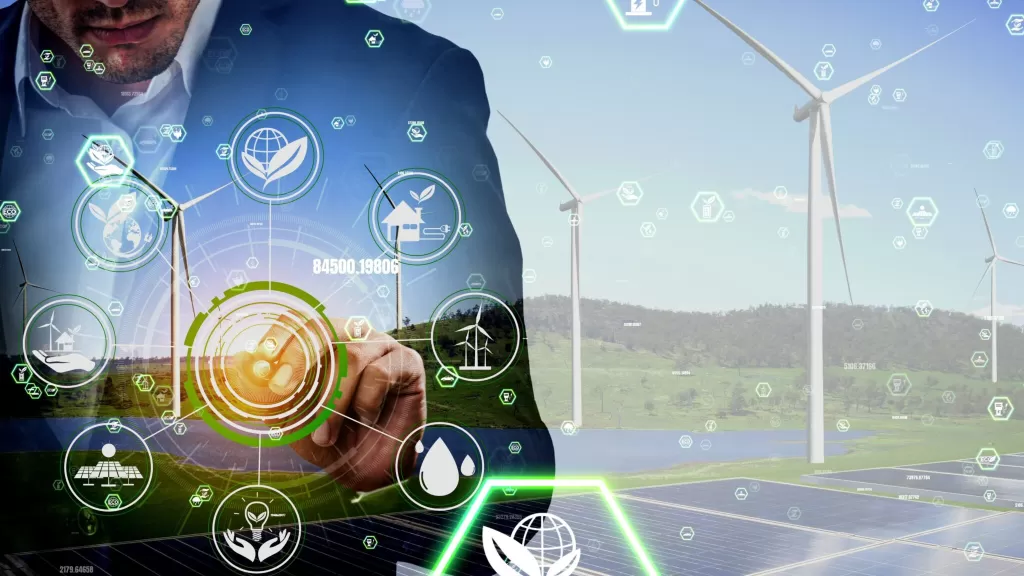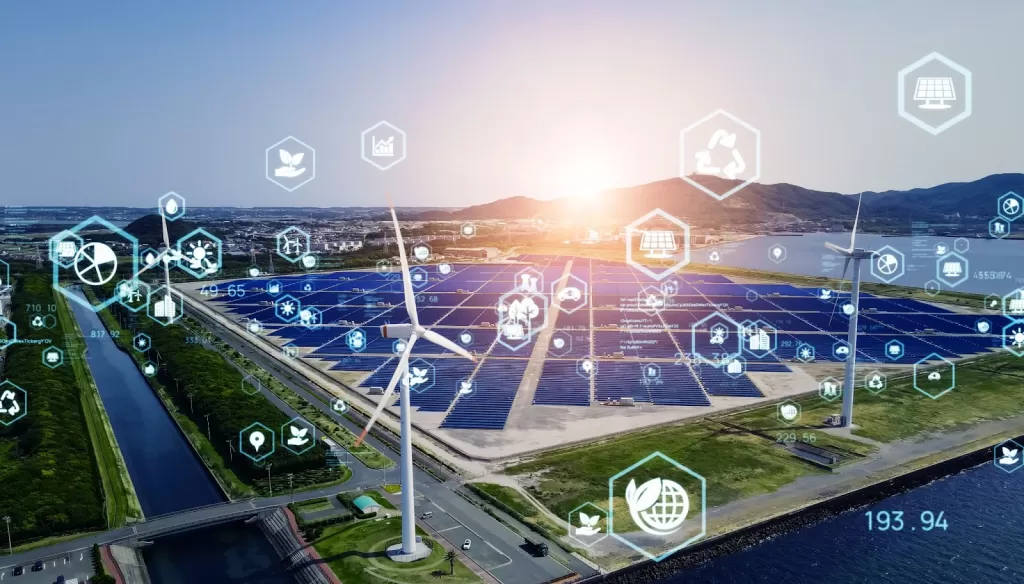Written By:
Scott McAuley
Scott is the IT Director of Texas Management Group, and has been in the IT industry for 25 years.
The energy sector is rapidly evolving, and so are the technological demands that power its operations. To keep up, efficient IT support is no longer optional—it’s essential.
Energy IT Support can streamline processes, boost security, and drive innovation, transforming how you operate in ways you might not expect.
Ready to unlock these benefits? Here are 10 powerful steps to success.
Let’s get started!
Key Takeaways
- IT support automates energy operations, reducing human error and increasing efficiency for smoother processes and faster results.
- Predictive maintenance uses data to forecast equipment failures, helping minimize downtime and improve reliability across energy systems.
- Cybersecurity solutions protect critical energy infrastructure, ensuring resilience against cyberattacks that could disrupt operations.
- Centralized data management allows energy companies to analyze and optimize resource allocation, improving overall decision-making.
- IT integration enhances smart grid technology, enabling real-time energy distribution for greater reliability and better system performance.
Table of Contents
The Role of IT in the Energy Sector

IT plays a crucial role in the energy sector by streamlining operations and enhancing efficiency. From power generation to distribution, IT solutions enable companies to manage resources more effectively.
Automation and data analytics are at the heart of modern energy systems. These technologies help optimize energy usage, reduce waste, and lower costs across the supply chain.
Additionally, IT infrastructure supports the integration of renewable energy sources. This is essential for balancing demand with supply and ensuring a more sustainable energy future.
Cybersecurity is also a major concern in the energy sector. IT departments work to protect critical infrastructure from increasing cyber threats, ensuring stable and secure operations.
In summary, the integration of IT in energy systems drives innovation, improves performance, and ensures the reliable delivery of energy. The sector relies on these technologies to meet modern challenges and future demands effectively.
5 Key Components of IT Support for Energy Operations
IT support plays a crucial role in modern energy operations, ensuring efficiency, security, and innovation.
Let’s explore the five key components that make IT support essential in the energy sector:
1. Network Infrastructure Management
Effective network infrastructure management ensures seamless communication and data flow in energy operations. Reliable networks reduce downtime and improve the overall efficiency of energy distribution.
2. Cybersecurity Solutions
Cybersecurity is critical in protecting energy systems from threats. IT support teams implement strong security measures to safeguard sensitive data and prevent cyberattacks.
3. Data Analytics and Management
Data analytics play a vital role in optimizing energy usage. IT teams help energy companies leverage data to make informed decisions, enhancing performance and reducing waste.
4. Cloud Computing Services
Cloud computing provides energy companies with scalable storage and computing power. This flexibility allows energy operations to adapt quickly to changes and streamline processes.
5. IoT Integration
The integration of IoT devices improves real-time monitoring and control of energy systems. IT support ensures these devices are securely connected and provide valuable insights for better decision-making.
10 Steps on How Energy IT Support Can Transform Your Operations
Energy IT support is crucial for optimizing operations and embracing modern technology.
Here are 10 key steps that show how IT can transform your energy business:
| Step | Description |
|---|---|
| Automating Operational Processes | Automates routine tasks, increasing efficiency and reducing human error. |
| Implementing Predictive Maintenance | Uses data to predict failures, reducing downtime and improving reliability. |
| Enhancing Cybersecurity Measures | Strengthens cybersecurity to protect energy infrastructure from cyberattacks. |
| Centralizing Data Management | Centralizes data for better decision-making and resource allocation. |
| Optimizing the Energy Supply Chain | Enhances supply chain coordination for efficient energy distribution. |
| Leveraging Cloud Computing | Provides scalable, flexible resources through cloud technology. |
| Supporting Smart Grid Technology | Implements smart grids for real-time energy distribution and improved reliability. |
| Facilitating Transition to Renewables | Helps integrate renewable energy smoothly into the grid. |
| Improving Employee Productivity | Enhances collaboration and productivity with IT tools. |
| Reducing Operational Costs | Identifies cost-saving opportunities through automation and optimization. |
1. Automating Operational Processes
IT support helps automate routine processes, reducing human error and speeding up tasks. This leads to increased efficiency and streamlined operations.
2. Implementing Predictive Maintenance
Predictive maintenance tools use data to anticipate equipment failures. IT teams can implement these solutions to minimize downtime and enhance system reliability.
3. Enhancing Cybersecurity Measures
IT support strengthens cybersecurity to protect critical energy infrastructure. Robust security measures prevent cyberattacks that could disrupt operations.
4. Centralizing Data Management
Centralized data management allows energy companies to store, analyze, and access data more efficiently. This improves decision-making and supports better resource allocation.
5. Optimizing the Energy Supply Chain
IT solutions help optimize the supply chain by improving coordination and logistics. This leads to a more efficient and responsive energy distribution system.
6. Leveraging Cloud Computing
Cloud computing offers scalable resources for energy companies. IT teams facilitate this transition, providing flexibility and reducing physical hardware needs.
7. Supporting Smart Grid Technology
Smart grid technology enhances energy distribution with real-time data. IT support helps implement and maintain these systems, improving energy flow and reliability.
8. Facilitating the Transition to Renewable Energy
IT support assists in integrating renewable energy sources. This ensures a smooth transition while balancing supply and demand in the grid.
9. Improving Employee Productivity and Collaboration
Collaboration tools and IT platforms boost productivity by enabling seamless communication. Employees can work together more effectively, even remotely.
10. Reducing Operational Costs
Automating processes and optimizing IT infrastructure reduce operational costs. IT support plays a key role in identifying cost-saving opportunities across the energy sector.
Conclusion
IT support is a game-changer for energy sector operations, driving efficiency, security, and innovation. By automating tasks and optimizing processes, businesses can reduce costs and improve performance across the board.
The implementation of predictive maintenance, smart grids, and robust cybersecurity measures ensures reliability and resilience in an ever-evolving industry. IT solutions also play a crucial role in the integration of renewable energy sources.
To stay competitive and future-proof, adopting the right IT strategies is essential. Ready to transform your energy operations?
Start implementing these powerful IT steps today for a more efficient and sustainable future!
Looking to Transform Your Energy Operations for Success?
Visit our blogs for expert advice and proven strategies tailored to the energy sector. Discover how our IT support services for the energy sector can revolutionize your infrastructure and drive performance.
Don’t wait—reach out today for a customized solution that aligns with your business goals!
FAQ
What Role Does IT Support Play in Enhancing Operational Efficiency in the Energy Sector?
IT support streamlines processes, reduces downtime, and ensures systems operate smoothly for better efficiency.
How Can IT Support Help Manage Regulatory Compliance in Energy Operations?
IT support helps by implementing systems that track compliance requirements and ensure proper reporting and data security.
What are the Key Technologies Used in Energy Sector IT Support?
Key technologies include cloud computing, automation tools, cybersecurity solutions, and data analytics platforms.
How Can Energy Companies Measure the Impact of IT Support on Their Operations?
Companies can measure the impact through KPIs like system uptime, incident response time, and regulatory compliance rates.






